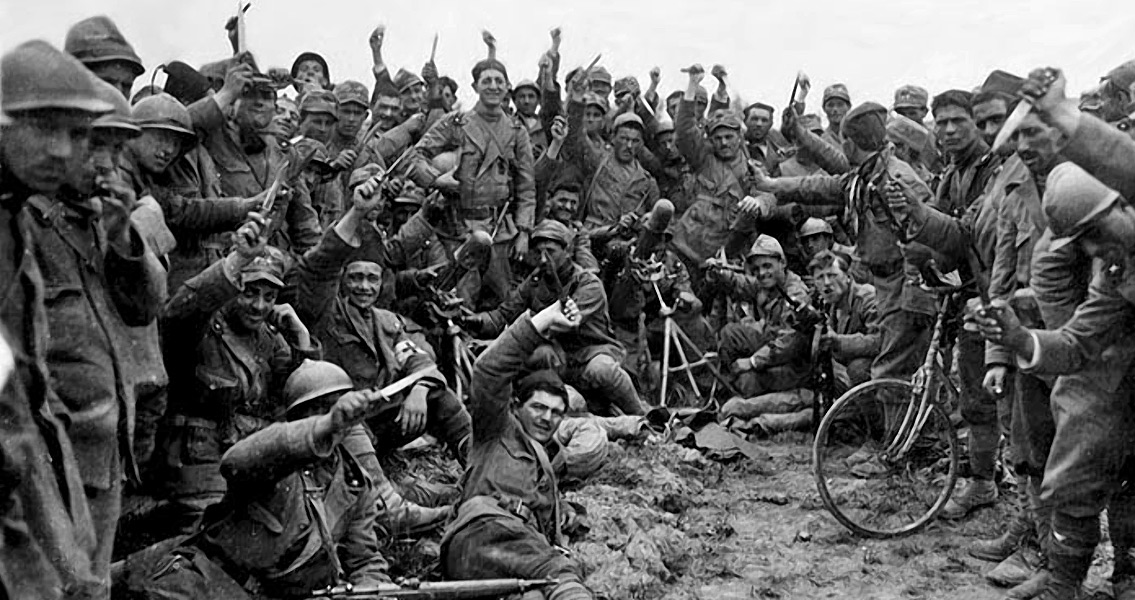<![CDATA[The First World War was one of the most brutal conflicts of all time. Between July 1914 and November 1918, more than 9 million combatants and 7 million civilians died as a result of the war. The technological and industrial sophistication of all sides, coupled with widespread tactical stalemate, meant that many of these lives were lost without any real purpose. The war and its aftermath affected vast numbers of people, both directly and indirectly. Some of the most interesting effects of the First World War were on minority communities as nationalistic rhetoric could severely test a group's integration. One of the groups which has not received sufficient scholarly attention is the Italian Jewish communities. A pioneering study has sought to explore how the First World War impacted on Italian Jews. By analysing the interpretation of the war by Italian rabbis, Ilaria Pavin - of the Sculoa Normale Superiore in Pisa - has sought to explore the religious and cultural references which Jewish leaders combined and harmonised with the values of the Jewish tradition and new patriotic and nationalistic expectations. One of the most interesting creations of the First World War was the military rabbi. Fulfilling a role similar to that of a military chaplain, military rabbis were created in Italian armies in the first weeks of the war, as they had been in the armies of France, Great Britain, Germany and the Habsburg monarchy. Military rabbis are exceptionally useful to the historian as their sermons and statements provide insights into popular discourses of the time. "The attitudes revealed in this correspondence help shed light on the military rabbis’ interpretation of the conflict and prove invaluable in understanding the specific approaches and the religious, cultural, and political references they employed in attempting to merge traditional Jewish values with the new patriotic and nationalistic ardor," Pavin writes in the journal Jewish History. Pavin argues that the religious leaders of the Italian Jewish community ultimately came to identify with the Italian nationalistic cause unconditionally. Messages communicated through wartime propaganda were incorporated into the rabbis’ sermons without much critical questioning. With the outbreak of war, Italian rabbis pledged their full-fledged support for the cause. Patriotic enthusiasm is clearly visible in rabbis’ sermons, Pavin argues. The sacrifice made by Italian Jews who laid down their lives for their country was portrayed as something to aspire to. Based on these sermons, it appears that Jewish communities in Italy had fully assimilated with the Italian patriotic identity. Interestingly, a clear Jewish identity, separate and distinct from Italian Christians, remained intact. “The perception and self-representation of Jews as a distinct minority at both a religious and an ethnic level did not conflict with their sense of identification with and loyalty to their country,” Pavin argued, “and thus did not prevent the rabbis— as can be seen in their sermons—from fully supporting the Italian war effort.” Pavin makes some interesting arguments and draws some fascinating conclusions. Precisely how the rabbis’ messages were received, however, still needs further investigation. Pavin notes that the rabbis’ war was very different from the average Jewish soldier as it was free of blood and death, he suggests this disconnect as a possible explanation for why many Jewish soldiers did not seek serious support from their religious leaders. For more information: www.link.springer.com Image courtesy of Wikimedia Commons user: File Upload Bot (Magnus Manske)]]>
Jewish Italian Attitudes to the First World War
